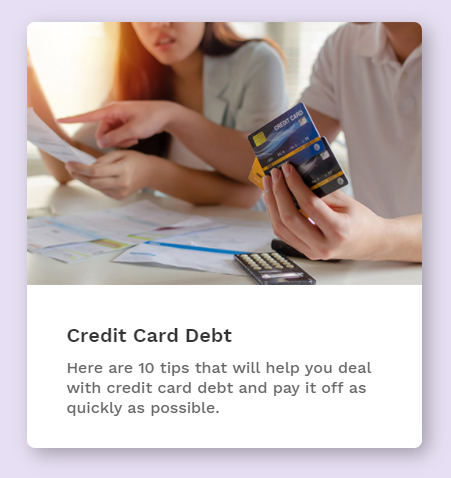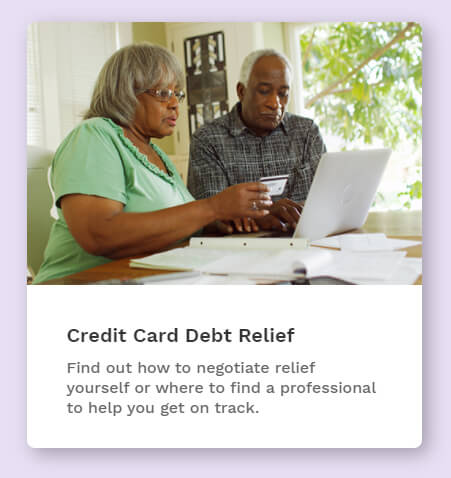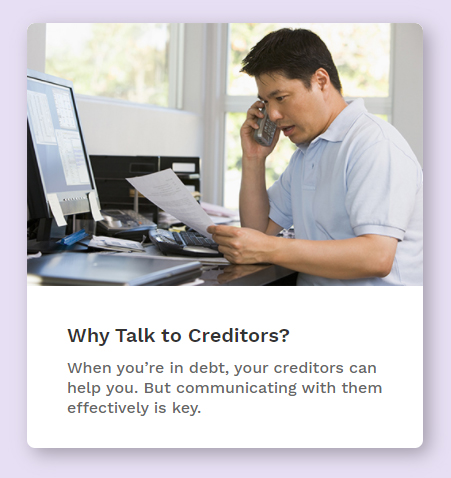Struggling to Pay Your Credit Card Bills? Here’s How to Take Action
By Carmen Chan
Credit cards are an easy way to pay for everything from day-to-day living expenses to big ticket items, but at times, credit card charges can pile up fast and you can find yourself with a lot more debt than you anticipated. If you’re struggling to keep up with your credit card bills to the point where even the minimum payment is hard to come up with, you’re not alone. Credit card debt has reached an all-time high in Canada, and over 50 percent of Canadians say they have “a lot of anxiety” when it comes to managing their debts.
But you can take action. Here’s how:
1. Figure Out How Much You Owe
Don’t bury your head in the sand – face your debts head-on. To start, assess your debt situation in its entirety. Sit down with a notebook and pen and list out each of your outstanding credit card balances. Record:
- The total amount of debt on each card
- The interest rate you’re currently paying for each card
- The minimum payment you must make each month
- The monthly due date for each account
Tally up how much you’re in the red. From here, you’ll know exactly how much you owe to each creditor and when you need to make your next payment. Even if you owe more than you think you can repay, knowing is better than not knowing; really, it is. Because then you can remain in control, rather than letting your creditors take over.
2. Assess Your Budget
You can’t abandon your fixed expenses, such as your mortgage, car payments, and energy bills to keep your house running. You could lose the roof over your family’s head or see your power supply cut off if you do. However, there might be options to scale back services to what you’re really using. Call each utility company and ask what they can offer you. Many have hardship options, too.
Determine what your budget can manage, with these priority expenses in mind. To do this, account for all of your income, using pay slips and bank statements. Next, add up all of your outgoing costs. How much is left over from your monthly income to apply to your debts?
Interactive Budget Calculator Spreadsheet – Make Budgeting a Breeze
You may need to shift to a bare bones budget for a few months with little wiggle room for discretionary spending, like eating out or going shopping, so every cent is going towards repaying your debts.
Your aim is to have enough funds to pay at least the minimum payment on your credit cards without continuing to use them on an ongoing basis. If you can’t do this, you may face additional fees, a higher interest rate, a hit to your credit score, and growing debt as interest accumulates.
If it looks like you can afford to make regular payments, set up a direct debit from your bank account to your credit card before the due date each month. This ensures you won’t face any late or missed payment charges.
3. Call Your Credit Card Company
If you’re struggling to keep your head above water with the minimum payments and ballooning debt, it’s time to contact your credit card company to explain your situation. Rehearse what you’ll say and create point form notes that include:
- Why you can’t pay the minimum payment
- How much you can afford to pay
- When you anticipate restarting normal payments
- What new payment you can accommodate and for how long
Contacting your credit card company shows accountability and initiative. Instead of letting your account go into arrears, you’re explaining why you’re facing financial difficulty and providing potential solutions that work for both parties.
How to Deal with Debt Collectors & Communicate with CreditorsPerhaps you’ve been laid off, have to pay for an emergency home repair, or you’re grappling with a medical emergency. Informing your creditors gives them an opportunity to help you. They may do so by:
- Lowering the interest rate on your cards, either permanently or temporarily
- Freezing interest and other charges
- Providing you with a grace period on your payments, so you won’t need to pay a cent until your situation improves (this usually only happens in situations such as job loss or health emergencies)
- Creating a tailored repayment plan with you, so you can make reduced payments you can afford over a fixed period of time
- Change your payment due date
If it feels overwhelming to deal with your credit card company directly, or if you’re in arrears already, keep reading; you might need professional help.
Signs That You Need Professional Help with Your Debts
4. Consider Credit Counselling
If you could really use some help with your debt, there are a number of debt consolidation options that are available to help you pay off your credit card debt. Each one has its pros and cons, so it’s important to speak with a qualified credit counsellor before you make a decision about what to do.
An avoidable trap that some consumers fall into is a balance transfer, which means you’re moving the debt on your credit cards onto a new card with less interest. In some cases, you may qualify for a credit card with zero percent interest for the first three to six months, giving you time to get your finances in order. You must watch out for any fees tacked on with the transfer and make sure that it’s a lower interest rate beyond the short-term promotion.
Credit card balance transfer promotions often look great up front. However, it can be hard to pay off what you owe before the promotional interest rate expires. If a low rate doesn’t continue, and if you don’t stick with high monthly payments to pay off what you owe, you might just end up with another credit card you can’t afford to pay.
If you need more help, seek professional financial assistance through organizations such as ours. One of our credit counsellors will meet with you either in person or by phone and review your situation with you. They’ll answer your questions and provide you with guidance. It’s free, confidential, and helps you decide how best to get back on track.
What Can You Expect from Credit Counselling?We can do this through certain programs, including a debt repayment program. You’ll work with a credit counsellor who will help you determine how much you can afford to pay each month and consolidate your debts into one affordable monthly payment. If you want to learn more about our program and if it’s the right solution for you, reach out to us now.
When You’re Done with Struggling to Pay Your Credit Card Debts
Accumulating credit card debt can be daunting but with some careful planning, you can get yourself out of the red and back on track. Taking control of your finances as soon as you can – on your own or with professional help – will ensure you don’t pay more in interest and charges while protecting your credit score. Follow the tips above to get started, but don’t be afraid to contact us if you need assistance. We’re here to help you get out of debt.
Last Updated on April 21, 2025







